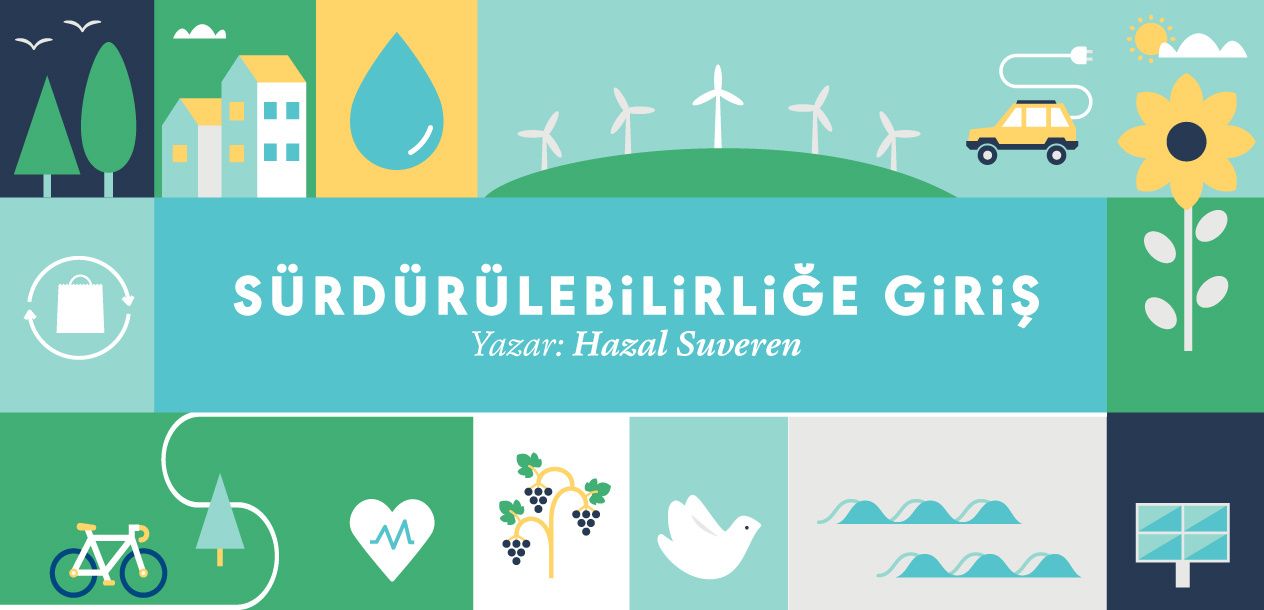- Home
- News About Us
- Introduction to Sustainability
Introduction to Sustainability
06 June 2024
Was the word sustainability always this embedded in our lives?
S-U-S-T-A-I-N-A-B-I-L-I-T-Y
Admittedly, it is a difficult word to say and write, but given the state of the world, it seems we will be hearing and using this term more frequently.
So, what exactly is sustainability?
In 1991, the United Nations World Commission on Environment and Development defined it as: “Meeting the needs of the present without compromising the ability of future generations to meet their own needs.”
Considering our lifestyles back in 1991 and subsequently, how plausible is it to say that today, in 2024, we are not compromising the ability of future generations to meet their needs?
You might recall that a few years ago, the surface of the Marmara Sea was covered with a substance called mucilage. However, in the 1990s, people could swim in the Marmara Sea without concern. This indicates that "not compromising" hasn't been very practical for us. Even if we consider only the geography we inhabit, we can find numerous compromises we've made. To avoid further compromises, here are a few small steps we can take:
1. Conscious Shopping:
The times when we couldn't leave our homes due to the pandemic aren't far behind us. However, the online shopping habit we adopted during that period has become routine. Recently, I saw a post on social media where someone was too lazy to go to a stationery store for a pen and ordered it online from another city. Is it really worth all the fuel, labor, plastic, and cardboard waste just because we are lazy?
By consuming locally grown products and using locally produced goods, we can reduce the environmental pollution caused by logistics. Particularly, if we can do our fruit and vegetable shopping at local markets or stores, we take a step towards supporting the local economy and contributing to sustainability. Bringing cloth bags with us while shopping also helps reduce plastic usage.
Reading the contents or labels of the products we buy is also important for a sustainable world. The chemicals used in agricultural and industrial productions are poisoning us. If we avoid products that are harmful to the environment and our health, producers will eventually have to take notice.
Our shopping habits are not solely driven by our needs. Do we really need the 18th pair of shoes? Or the dust-gathering candle holder on the coffee table? How long does the satisfaction from purchasing last? If we don't really need it, not buying it is the best choice. It's not always easy for us humans to manage this. In such cases, we can consider second-hand items. Opting for sustainable products that can be used for years by different people significantly reduces environmental harm. From another perspective, antiques can add a beautiful touch to our homes.
2. Consumption:
How long can a human survive without drinking water? We need water not just to stay alive but in every aspect of our lives. Considering our hygiene needs and many other requirements that cannot be met without water, we can easily see the impact of improper use of water resources. Being careful with water usage can reduce waste and pollution and minimize the energy required to transport water to various places. Fixing a dripping faucet, reducing the frequency of showers, even reverting to the traditional bath setup, and using low-flow showerheads and faucets are all easy measures we can implement at home.
3. Energy Conservation:
Is it really that hard to turn off the lights when moving from the kitchen to the living room? Or is unplugging the computer at night really too much work? Changing such small habits can significantly contribute to the environment. Taking it a step further, if we choose energy-efficient products, maintain devices like air conditioners and boilers as recommended by manufacturers, we can positively impact both our budget and the environment.
In our major investments, it's crucial not to overlook renewable energy alternatives. If we're buying a car, we can consider electric or hybrid vehicles. However, prioritizing public transportation will always be a more sustainable option.
4. Waste Management:
In our daily lives, we produce a lot of waste like product packaging, food peels, and wrappers. But is all this waste truly unavoidable? As mentioned in the conscious shopping section, using cloth bags might help us eliminate half of the waste we produce. By carrying our drinking water in glass bottles, we can avoid microplastics and reduce plastic waste. Additionally, we can save organic waste from becoming garbage by composting it.
Hazal Suveren – Sustainability Manager

